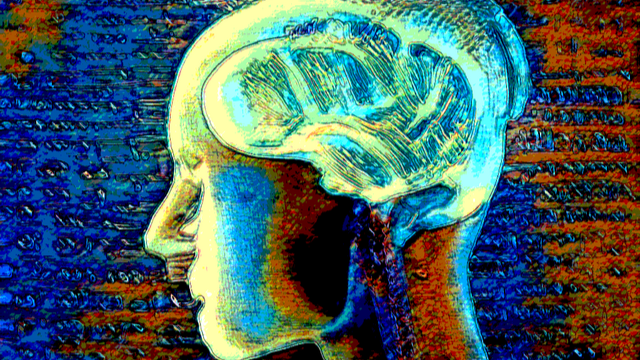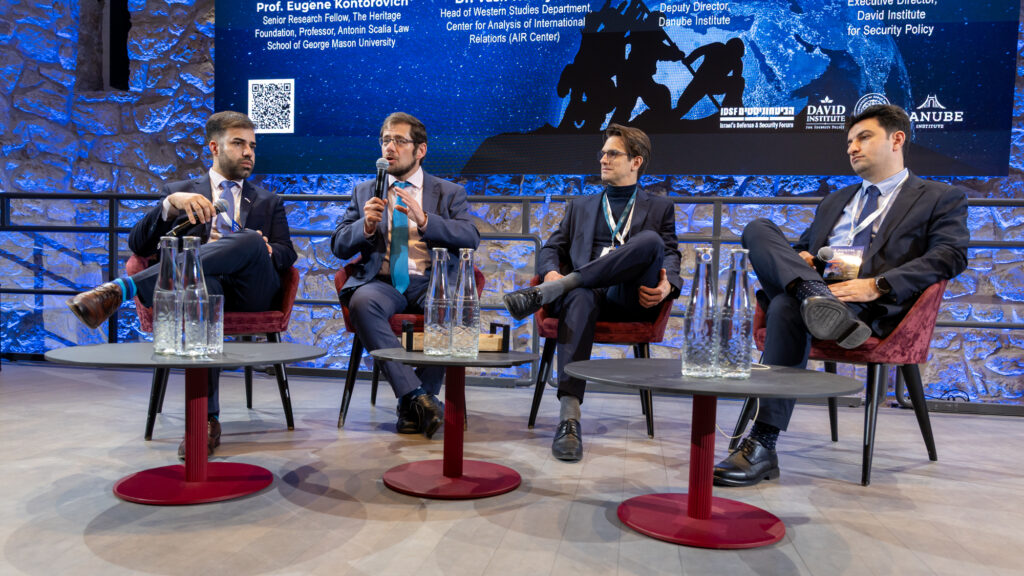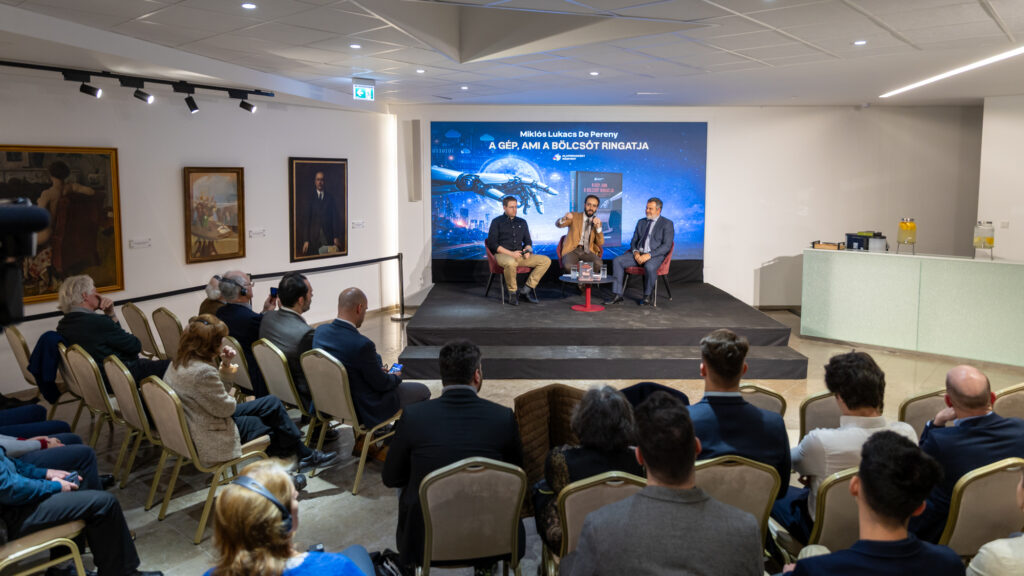We would be naïve to view AI as merely another gadget. It alters the foundations of work, education, family, and culture. To face it rightly, we need not fear machines but recall the old virtues: stewardship, tradition, sovereignty, and the dignity of the human person. These reveal seven great conundrums of the ‘AI age’—points where progress and prudence collide.
1. The Energy Conundrum: AI’s Gluttony
AI does not run on magic. It runs on electricity, silicon, and water—vast quantities of each. Training a single large model can consume enough power to light more than a hundred homes for a year and emit hundreds of tons of carbon. Data centres already rival major nations in energy use; by the end of 2026, they might collectively be the fifth-largest energy consumer on the planet.
This is not the fantasy of frictionless intelligence but a real-world appetite, chewing through minerals and draining rivers to cool the servers that make ‘the cloud’ function. A technology meant to free us from material limits in fact magnifies them. Like a modern Tower of Babel, it reaches for heaven while trampling the earth beneath it and from which it is constructed.
Conservatives, especially those guided by Christian ecology, should see in this an opportunity for moral clarity. Stewardship calls us to ‘tend the garden’, not strip-mine it. The problem is not chiefly the technology itself, but its cult of limitless expansion, the unnecessary necessity attached to ‘the AI future’.
2. The Distraction Conundrum: Homo Distractus
If the first cost of AI is physical, the second is spiritual. The ancients had ‘bread and circuses’; we have infinite scrolls and algorithmic amusements. AI’s greatest product is attention capture—content tuned to our weaknesses, desires, and vanities.
Each swipe brings a new morsel of stimulation, numbing reflection and fragmenting the powers of the soul. The modern citizen risks becoming the entertained subject of an invisible emperor: the recommendation algorithm. We confess to loving our devices, but in truth, they love us only as data.
Philosophers from Plato to Pascal warned that unbroken diversion kills contemplation. The Christian knows why: man was not made for endless novelty but for enduring meaning. The deluge of AI-generated media delivers excitement without substance, empathy without encounter.
3. The Human Contact Conundrum: Incarnation vs Simulation
When artificial intelligence can imitate human speech and expression, authenticity becomes a scarce good. The more our correspondence, images, and even voices can be generated, the more precious the real becomes. The next revolution may not be digital but incarnational.
We crave what cannot be faked: the warmth of another’s body, the glance that reveals more than words, the laughter that resists algorithmic scripting. The Incarnation itself—God made flesh—confirms that reality is relational and embodied. To be human is not to compute but to commune.
‘The more synthetic our world becomes, the more hunger grows for the tactile, the true’
Already, the reaction is visible. Silicon Valley executives quietly limit screen time for their own children and send them to tech-free schools. Young adults host ‘analogue nights’, rediscover board games, crafts, and dancing. The more synthetic our world becomes, the more hunger grows for the tactile, the true, and Truth unmitigated by a screen.
4. The Sovereignty Conundrum: Nations and Narratives
Beyond the personal lies the political. Who shapes the algorithms that shape us? If they are written in California or Beijing, then the values embedded in them—what is ‘acceptable’, ‘harmful’, or ‘true’—inevitably reflect foreign assumptions.
For a nation like Hungary, proud of its Christian, national and regional identity, this is no small concern. To surrender digital infrastructure is to risk cultural colonization. AI trained on Anglo-American data may subtly promote secularist norms, marginalizing local languages, traditions, and moral sensibilities as ‘harmful’.
Hence, the rise of ‘sovereign AI’—national projects to ensure that technology speaks in the mother tongue and serves domestic priorities. Hungary’s insistence on national control mirrors its broader defence of sovereignty within the EU: cooperation without erasure of local identity.
5. The Moral Conundrum: Delegating Judgment
The most perilous surrender may not be political but moral. We already let algorithms decide which routes we drive, which films we watch, and even which candidates’ ads we see. But what happens when they begin to guide sentencing in trials, medical triage, or hiring practices?
Convenience can seduce us into abdication of responsibility. Once moral reasoning becomes a matter of statistical output, conscience itself will be obsolete. The danger is not that artificial intelligence will turn evil, but that we will forget how to discern good.
The classical tradition—Aristotle’s phronesis, Christian prudence—teaches that judgment cannot be reduced to the calculation of data. Data describe what is; wisdom discerns what ought to be. A society that confuses the two becomes technically advanced but morally stunted.
When the algorithm tempts us to say: ‘The computer made me do it’, we must remember that only humans can sin—and therefore only humans can be redeemed.
6. The Formation Conundrum: Shaping Souls
Education and family life form the moral core of any civilization, and both are being reshaped by AI. In classrooms, it writes essays and solves problems faster than students can think. Teachers scramble to preserve genuine learning—reintroducing oral exams, handwritten work, and live debate.
At home, the pressures are equally profound. AI companions promise emotional comfort; ‘digital friends’ simulate affection. Yet a child raised by algorithms may learn to treat people as interfaces rather than souls. The previous pope, Francis, warned that confusing AI for personhood risks deforming the human heart.
Families can answer by reclaiming ritual: meals without screens, bedtime stories read aloud, real chores and shared prayers. These are not quaint gestures but defences of humanity on its own terms.
7. The Labour Conundrum: The Dignity of Work
AI’s promise of automation raises a final question: What becomes of work? Some celebrate liberation from drudgery; others fear a ‘useless class’ displaced by machines. Both notions contain truth.
Christian and conservative thought holds that work is not merely economic but existential. To labour is to participate in creation, to express care and competence. When machines absorb this role, they risk impoverishing not only wallets but souls.
Perhaps paradoxically, the mechanization of many trades will elevate those irreducibly human: care work, art, teaching, and manual craft. When everything can be automated, the most valuable labour will be that which no machine can mimic—the work done with love.
Towards a Human-Centred Future
Who’s afraid of AI? We all should be a little. Fear, rightly ordered, is prudence. It reminds us that immense power demands moral direction, not blind hope in progress.
‘The question is not whether machines will be intelligent, but whether humans will remain wise’
The question is not whether machines will be intelligent, but whether humans will remain wise. The two thousand years of Christian tradition offer a clue: every innovation must serve the common good and uphold the dignity of the person as made in the image of God.
If we act from that conviction—cultivating restraint, restoring community, guiding technology with moral clarity—then the AI age may yet be remembered not as humanity’s eclipse, but as its reawakening. For man, made in the image of God, remains the steward of creation—even of his own creations. AI may be powerful, but it will never possess a soul. It is for those with souls to decide what the future will hold.
Related articles:






